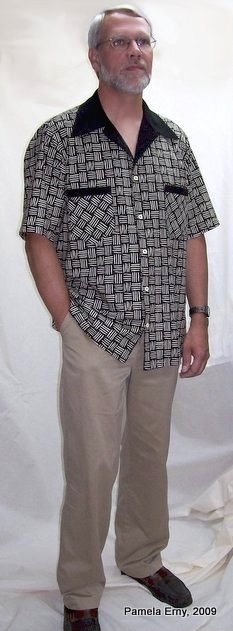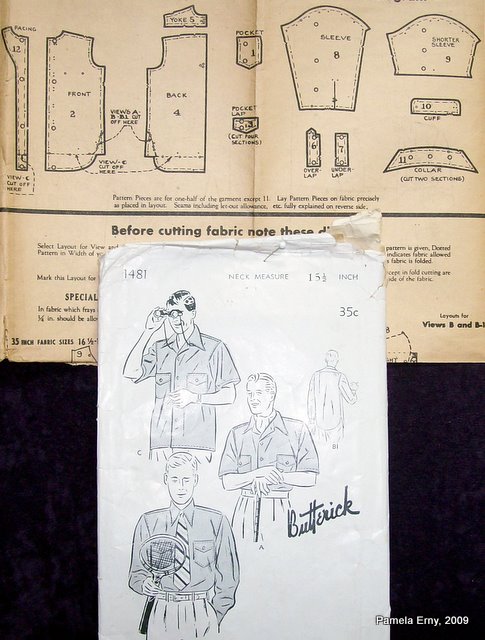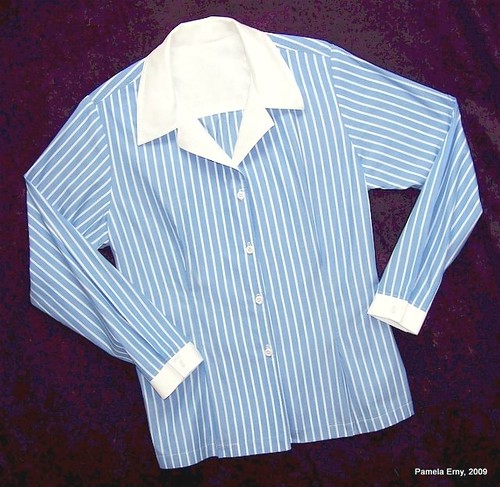The Vintage Shirt....Completed
Here is Roger wearing his new shirt. He decided he liked the flat collar better than when it was folded with a "roll." Tee-hee...he looks so happy doesn't he ? He really is a nice guy and does love the shirt...really. Modeling? Not so much!
As I said in previous posts, I had high hopes for this pattern because of the way it is drafted. And the proof was in the sewing...it went together beautifully, each piece meeting its match perfectly. Further proof is the terrific fit...right out of the envelope. I really like the way the collar lays, the fit at the shoulders, and how the sleeves do not have that awful "wing-out".
I will definitely make this shirt again, and use it for clients. Even though Roger and I both like the funky retro vibe of this particular version of this shirt, for future versions I may change the collar (making it less pointed/ more narrow), to reflect current style trends.
SEWING NOTES: All seams are Flat Felled. Interfaced with PRO-SHEER ELEGANCE Interfacing from ~Fashion Sewing Supply~, Cotton fabrics from my stash.
Nancy K asked, "Did you do the flat fell seams in the body of the shirt the same way as you did the sleeves?"
Yes Nancy, I did....well almost the same way. When I was cutting out the shirt, I used 1" seam allowances on the side seams of the body and sleeves. Then I trimmed the back allowances to 1/2", and proceeded to fell them as I did the sleeve cap seams.
Labels: More Shirt Designs






























